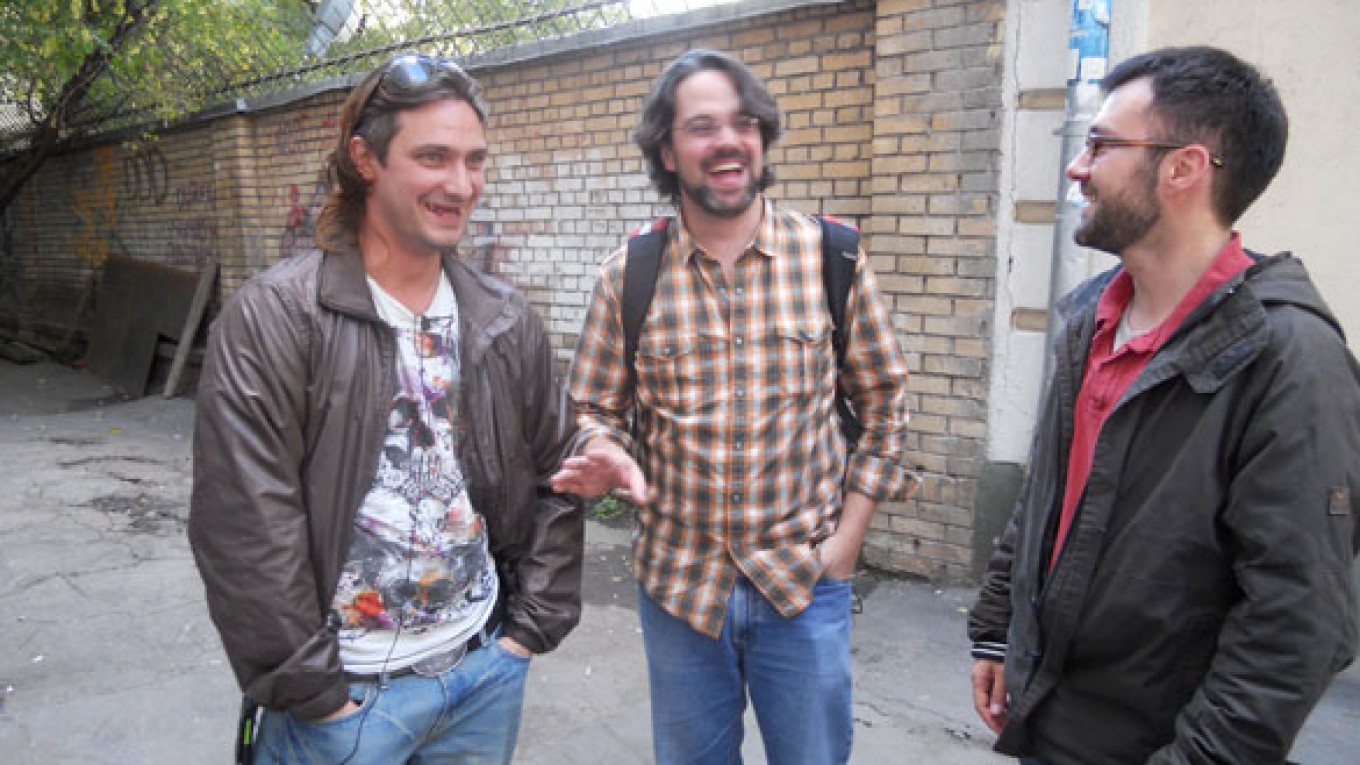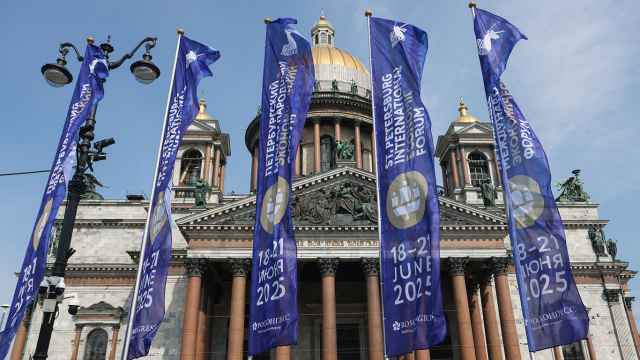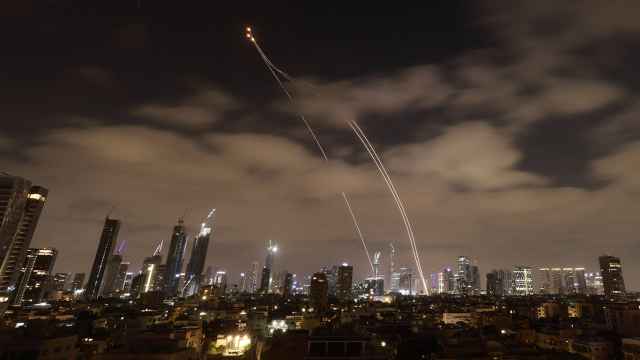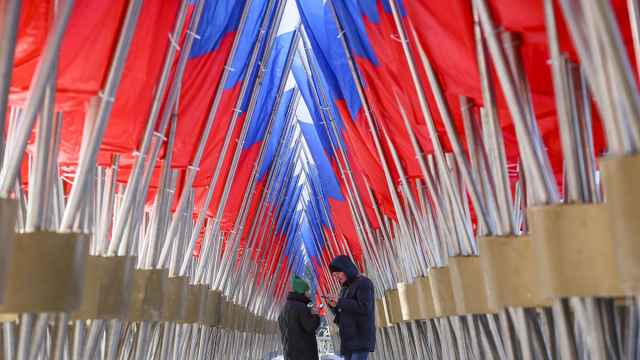Recently I did some surfing on the Internet to see what has been written about Russian theater of late. I do this with some regularity, and I’m rather accustomed to the results. It isn’t often that I find something I hadn’t seen before.
So I don’t know if it was the improved searching capabilities of some of the search engines, or if I was just less glassy-eyed than usual. But several pieces cropped up that surprised me. Combined with some of the worthy regulars that show up with any search, I realized I had made discoveries that were worth talking about.
How can I not start with Noah Birksted-Breen, a director, translator and playwright who works out of London and runs his own Russian-themed theater called Sputnik? Birksted-Breen is so ubiquitous that he has even spelled me a time or two in this column space while I was on vacation.
Actually, I’m pretty up-to-date on what Noah is doing, so I was surprised to find a blog that he wrote for the Guardian in March 2009, which I had never seen. This one caught my eye especially because, rather than pushing contemporary Russian drama as he usually does, here he was extolling the virtues of Russian classical literature.
I am particularly partial to his call for someone to find the nerve to stage Alexander Ostrovsky in English. Ostrovsky was the Russian Shakespeare, a giant of the theater. The fact that he is somehow “too Russian,” i.e., more arcane than Chekhov, has hindered his legacy in English for more than a century. I’m with Noah — let’s find somebody who is willing to put this guy on English-language stages.
Having mentioned Noah in England, I now travel all the way around the globe to Alaska. Yes, to that place where Russia can be seen looming out of some politicians’ windows. At least that is so when said politicians aren’t tracking down grizzly bears.
You see, Alaska is the home of Anatoly Antohin, who, until the spring of 2009, was a professor of theater at the University of Alaska at Fairbanks. Antohin, who emigrated from Russia in the 1980s, is a playwright, director and something of a mad Internet scholar. His web site is a trip to enter. When its home page opens, you feel a little like you are being lowered into the cyber version of Shakespeare’s “boil, boil, toil and bubble.”
But isn’t that what good theater — and good writing about it — should always be like?
I was taken aback to find an interview in English with the Yekaterinburg playwright Oleg Bogayev from 2009. Oleg is an old acquaintance, and I still remember receiving an electronic copy of his newest play, “Maria’s Field,” a few years back.
What I had no idea about, however, was that a production of that very play was mounted in Chicago in the spring of 2009. As part of the lead-up to that, Oleg responded to several questions in written form, and that was published on the web site of the Chicago Department of Cultural Affairs.
Writing about what it was like to grow up in Russia as a child, Oleg offered this beautiful observation: “I don’t think there is any other place in the world with such fresh morning air as in Russia when I was seven years old.”
A pair of Bogayev’s fellow citizens from Yekaterinburg were the toast of contemporary Russian drama throughout much of the first decade of the 2000s. I would wager that more has been written about the Presnyakov brothers than any other playwrights of this decade. And yet, somehow a 2006 piece about them that ran in Time magazine somehow slipped past me.
I find this article particularly interesting because its final lines describe a new play the brothers were then working on. The title is not mentioned, but the description leaves no doubt: It is “Seven Days Before the Flood,” which opened at Moscow’s Stanislavsky Drama Theater just this fall.
(For the record, I will run a review of this play in The Moscow Times on Thursday.)
One of the oddest discoveries that I made is a pdf document of a text by Maksym Kurochkin with no explanation as to its origins. I happen to know, however, that Kurochkin spent several months in residence at the International Writers Program of the University of Iowa in 2004. I also know that shortly after Kurochkin wrote this curious piece about bicycles and the principles of good theater, he wrote a play called “The Schooling of Bento Bonchev,” about bicycles and the weird nature of love on an American college campus sometime in the not-too-distant future.
Ah, they can’t escape us literary sleuths!
However, if you are going to do any surfing of your own, be forewarned: The playwright Maksym Kurochkin, who hails from Kiev and whose first name is sometimes spelled Maxim or Maksim, has nothing to do whatsoever with Mad Maxim Kurochkin, the purported Russian businessman and alleged crime boss who was murdered outside a Kiev courthouse in 2007.
Almost exactly one year ago the Royal Shakespeare Company was taking a chance on a pair of playwriting Russian brothers from the Durnenkov family of Tolyatti. Vyacheslav and Mikhail write separately as often as they write together these days, but for this project in London they were back in collaboration mode.
The play they came up with, “The Drunks” (which you can read about here and here), observes a bumbling politician as he attempts to attach himself to an ex-war hero for political gain. It received uniformly positive reviews, if it also received the requisite “Russia must be crazy” tag from many reviewers, who, one must assume, never bother to look at the headlines in their own national newspapers.
More recent is a review of Yury Klavdiyev’s “I Am the Machine Gunner,” which recently played outside of Chicago in a production by the Generous Company of Baltimore. Klavdiyev, by the way, also hails from Tolyatti, and he also spooked the critic enough to get lumped in with the generation of British authors known as the “New Brutalists.”
I’m always for putting a scare into critics.
Finally, there is Steven Leigh Morris’ beautiful review of Lee Breuer’s production of Sam Shepard’s “The Curse of the Starving Class” in Saratov. This is not the video chat that I did with Steven outside the Theater Yunogo Zritelya in Saratov a while back; it is Morris’ full-length essay in the L.A. Weekly. It is a rewarding read.
A Message from The Moscow Times:
Dear readers,
We are facing unprecedented challenges. Russia's Prosecutor General's Office has designated The Moscow Times as an "undesirable" organization, criminalizing our work and putting our staff at risk of prosecution. This follows our earlier unjust labeling as a "foreign agent."
These actions are direct attempts to silence independent journalism in Russia. The authorities claim our work "discredits the decisions of the Russian leadership." We see things differently: we strive to provide accurate, unbiased reporting on Russia.
We, the journalists of The Moscow Times, refuse to be silenced. But to continue our work, we need your help.
Your support, no matter how small, makes a world of difference. If you can, please support us monthly starting from just $2. It's quick to set up, and every contribution makes a significant impact.
By supporting The Moscow Times, you're defending open, independent journalism in the face of repression. Thank you for standing with us.
Remind me later.







